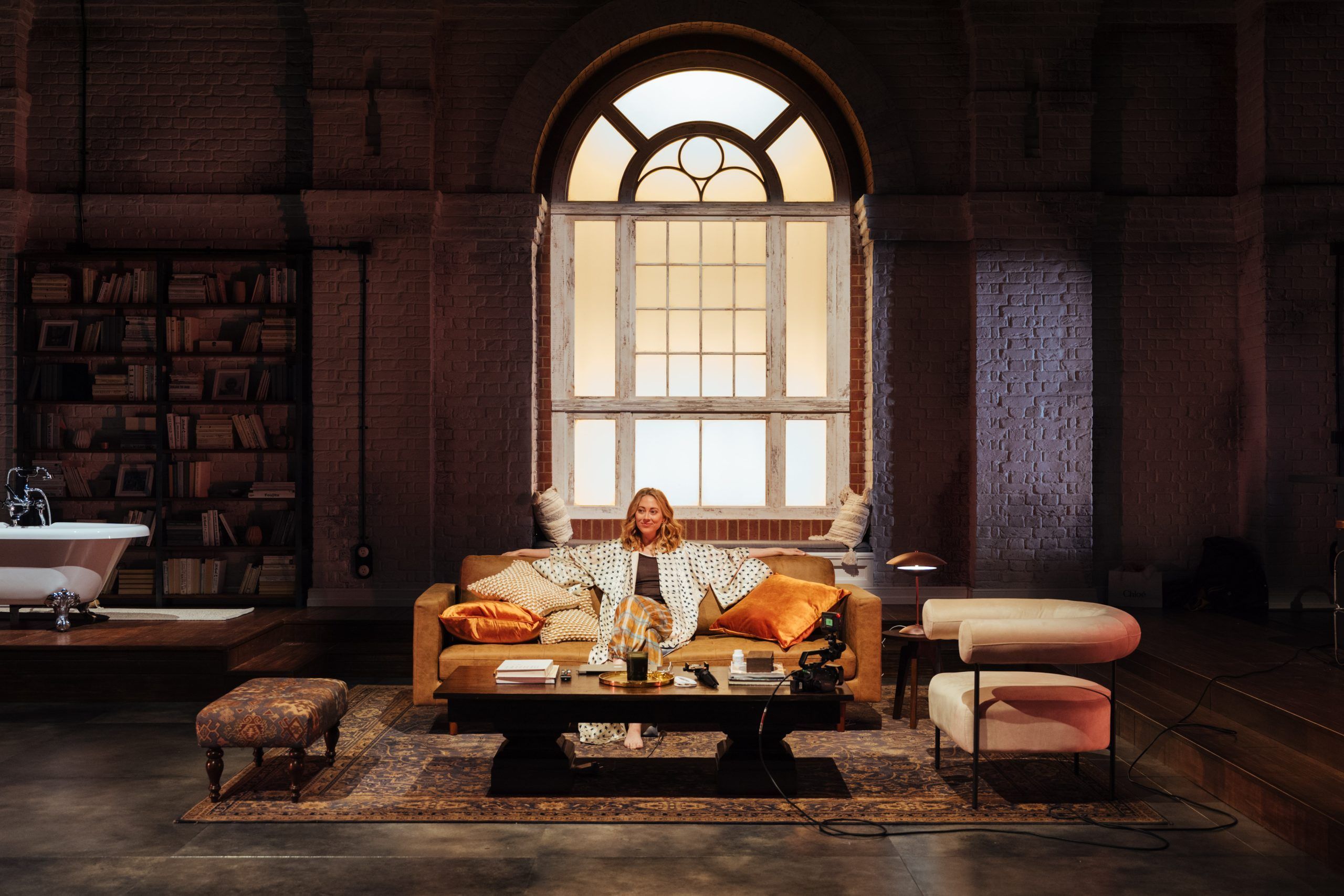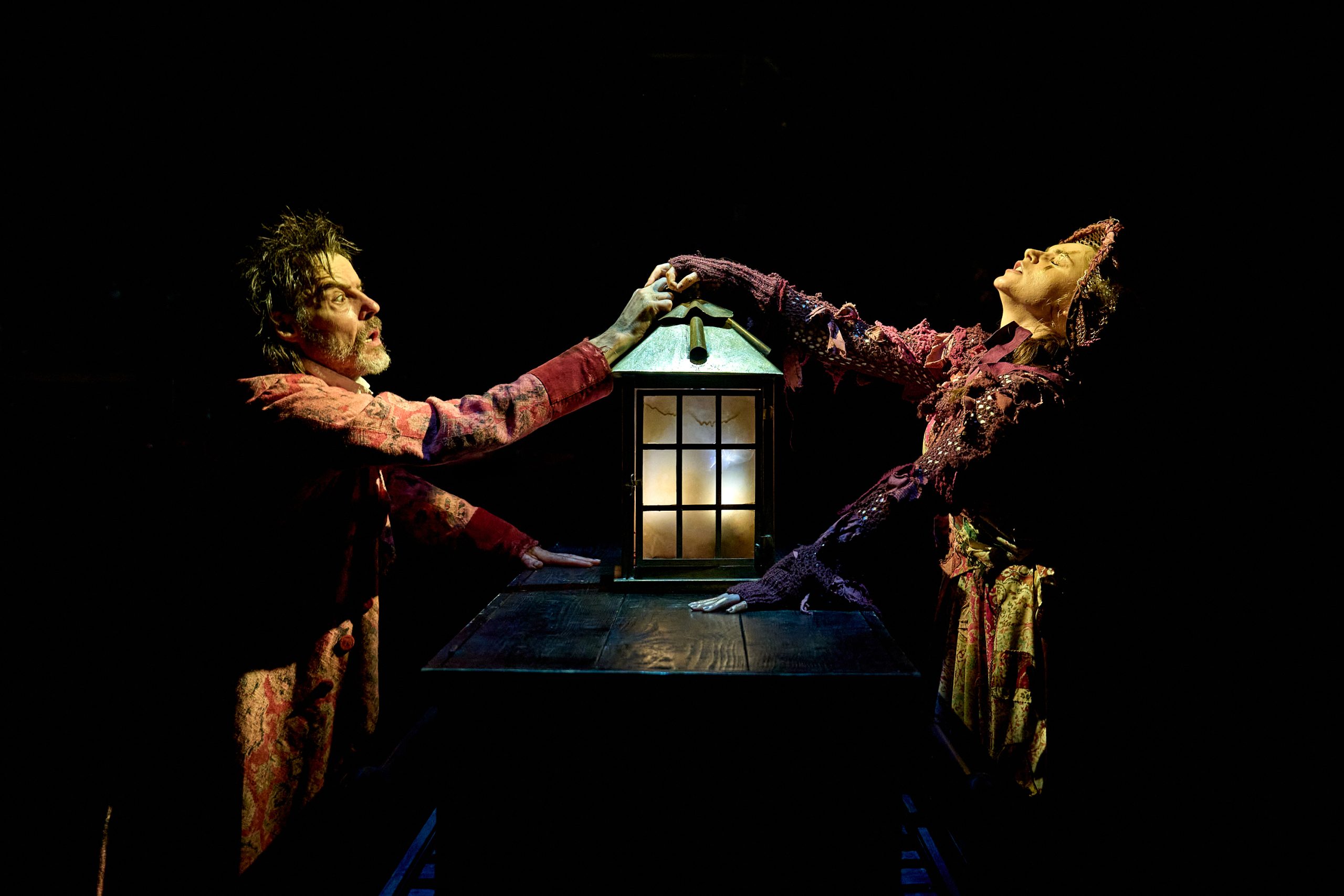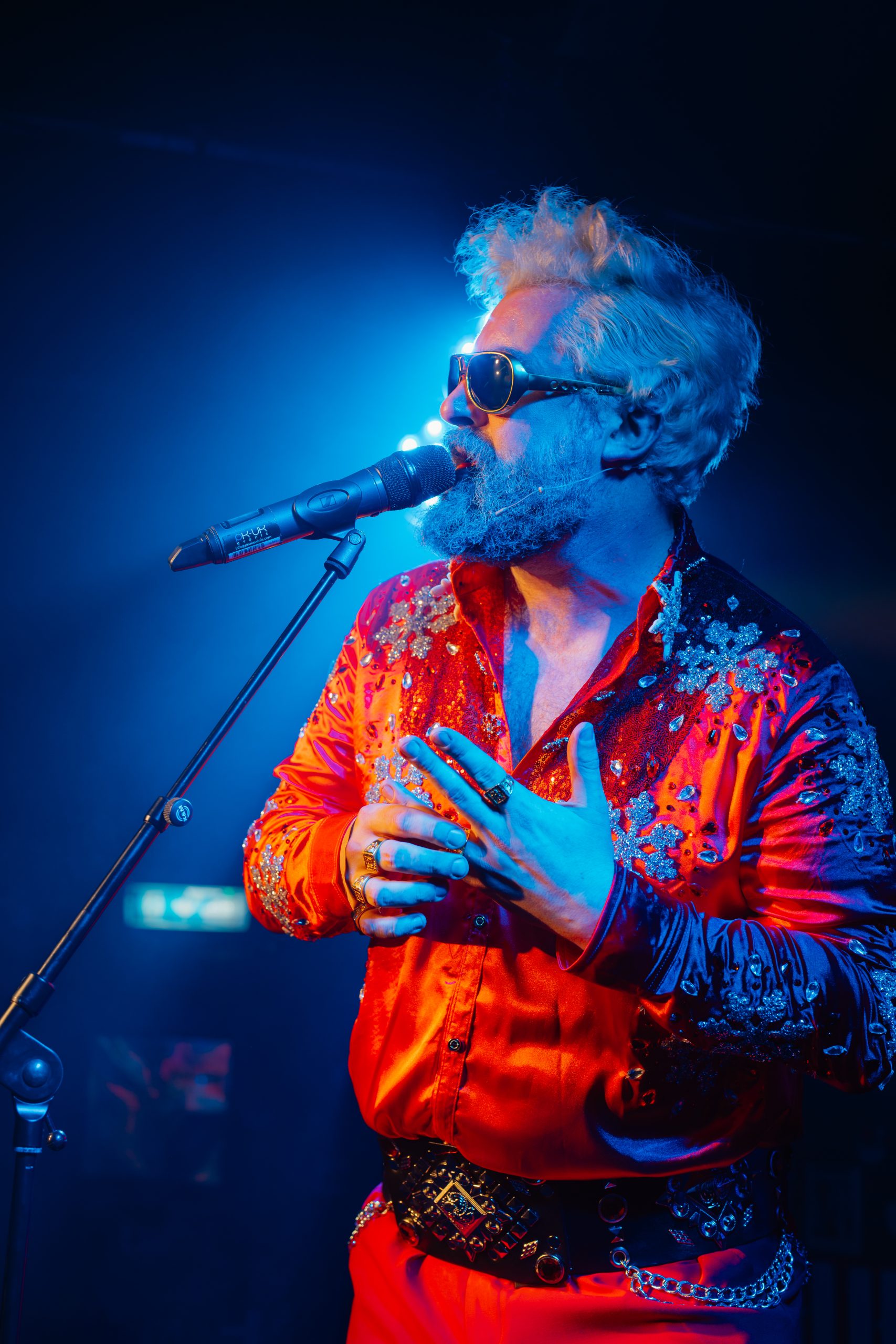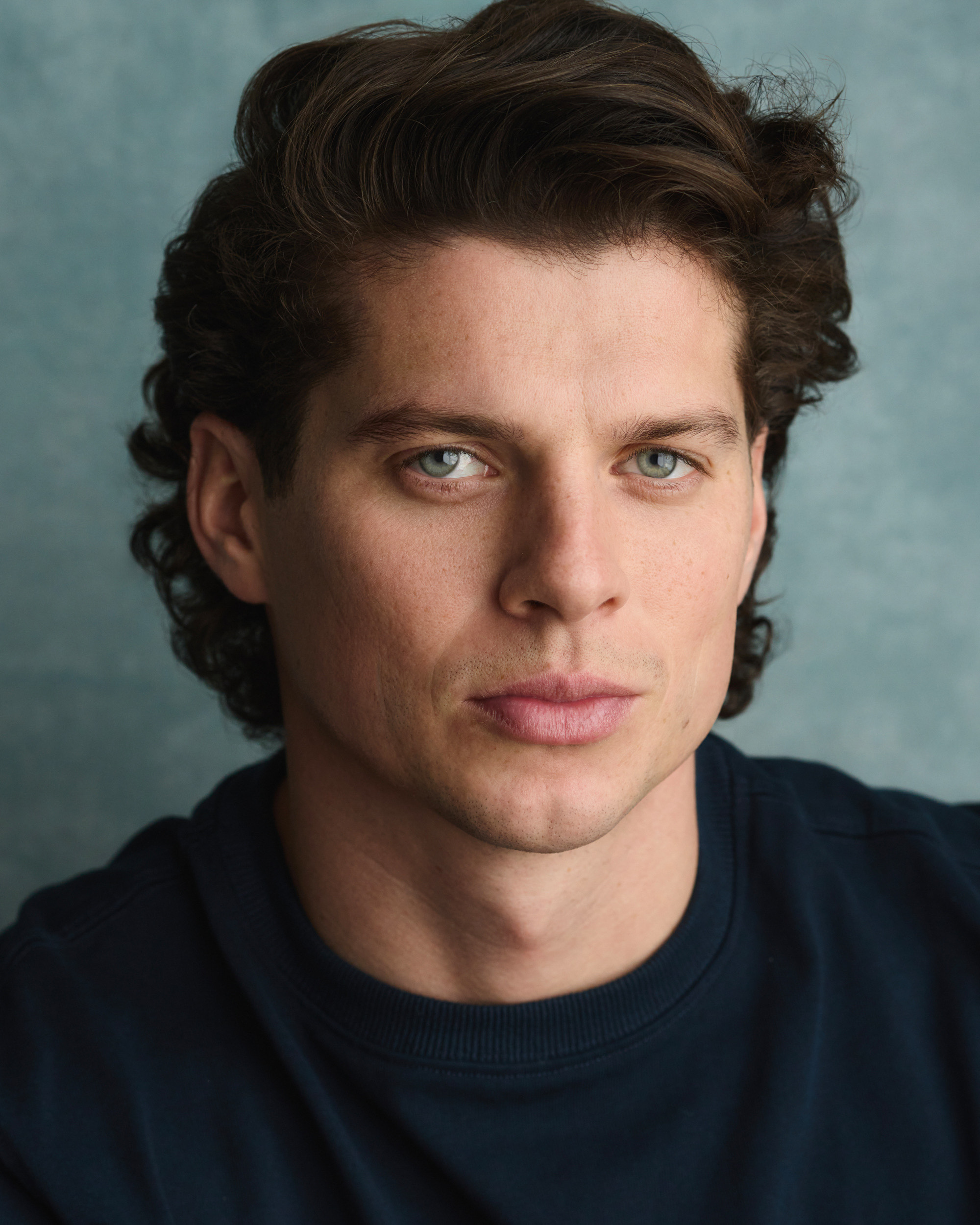The stage adaptation of Interview, seen at Riverside Studios in Hammersmith, plunges two opposing worlds into a single, stylishly minimalist Brooklyn loft. The play is adapted and directed by Teunkie Van Der Sluijs from a screenplay by Theodor Holman and a cult Dutch film by Theo Van Gogh that was itself remade for a US audience by Steve Buscemi. The play centres on a sparring match between a jaded, old-school, middle-aged, male journalist, and a modern, female, Gen-Z influencer, raising timely questions about truth, storytelling, and who controls the narrative.
The two-hander play opens in disorienting darkness, pierced by a relentless, drum-and-bass style soundtrack which immediately establishes a sense of unease. A spotlight isolates Pierre (Robert Sean Leonard), a veteran political journalist for The Washington Post, with a seemingly prestigious career covering global conflicts and international affairs. He’s now three months sober and seemingly on the brink of a major career triumph as he awaits news of an impending presidential impeachment brewing in Washington DC.
Yet, despite the political storm brewing in Washington, Pierre finds himself sidelined and dispatched to a chic, Brooklyn loft to interview a woman for whom he has neither respect nor interest: Katya (Paten Hughes). She is a Gen-Z influencer who, perhaps through popularity, perhaps through hard graft, has morphed into a film and TV star. Pierre’s frustration at the assignment is palpable. He’s a journalist accustomed to extracting facts from hardened politicians and is now forced to navigate the curated, stylised world of influencers and celebrity, a sphere he neither knows or cares much about. It’s a professional humiliation.
Katya is entitled, diffident, enigmatic and self-made. Sharing her ‘real’ life online is her business and it’s interesting to ponder where the line is drawn between a private life and a public one. She lives her life online – her tools of the trade are video, social media, and the ability to be popular. She understands that in the digital age, visibility is power. She knows how to play this game and she plays it successfully.
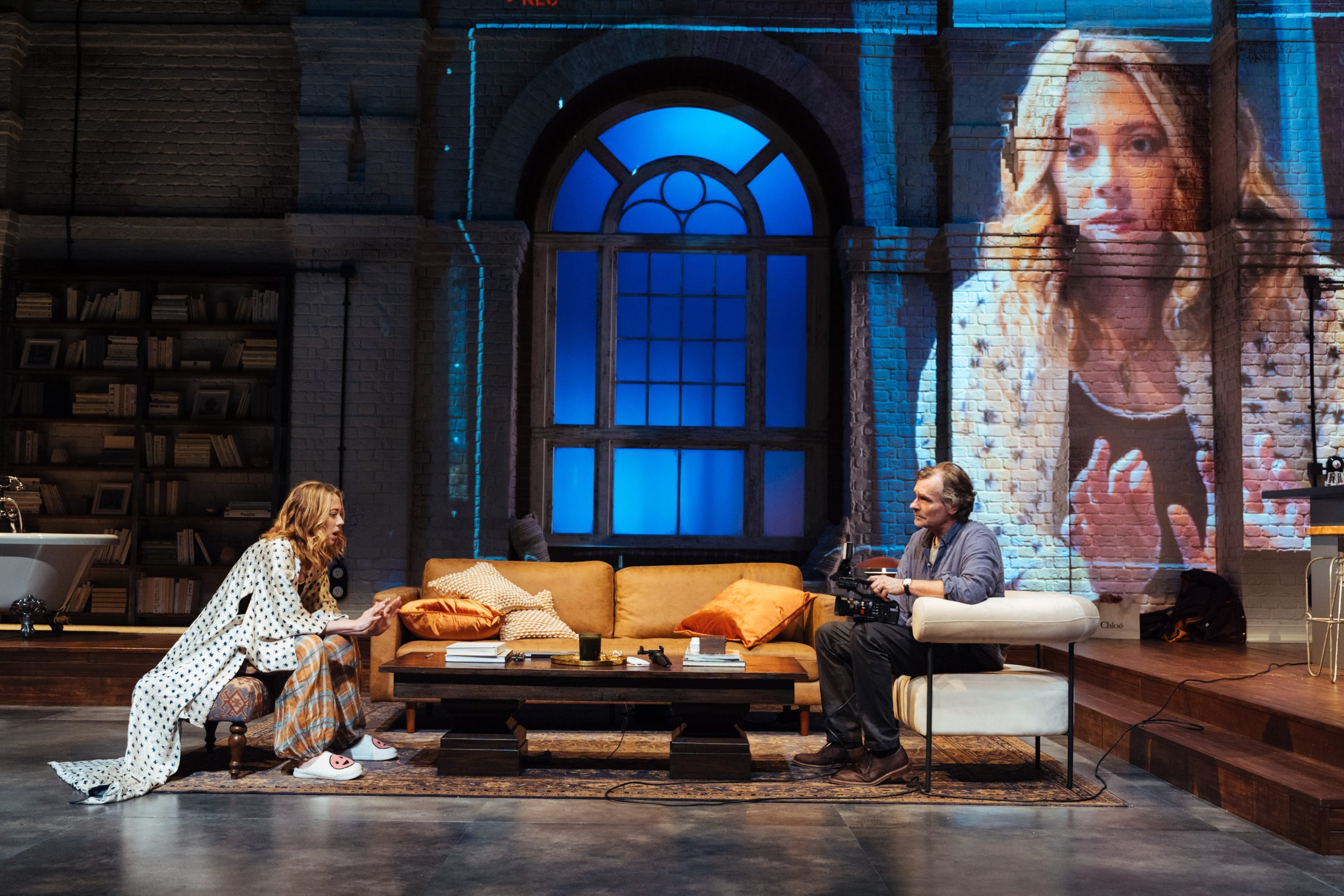
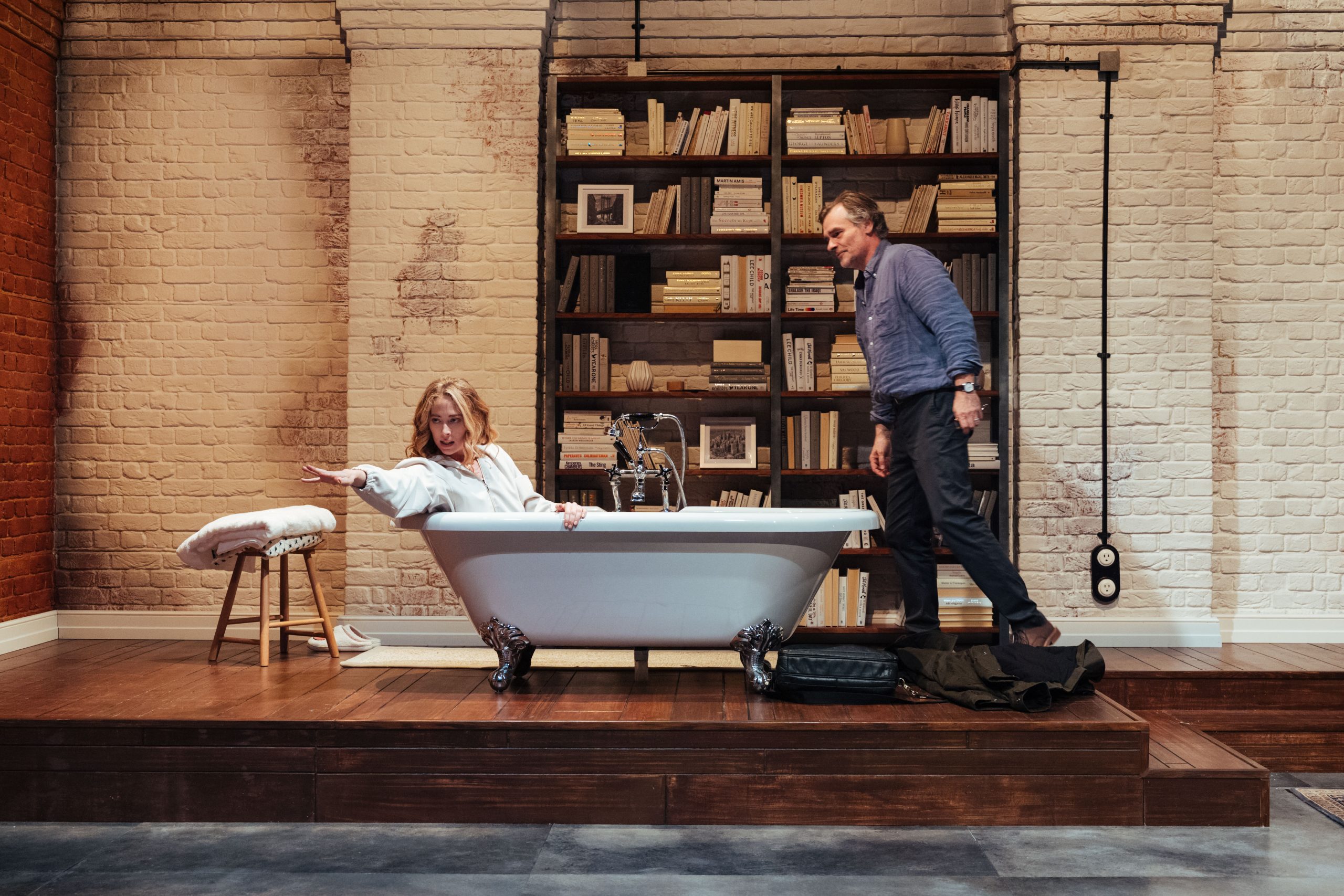
So far so good. This is an interesting premise and the strong set up suggests a sparkling sparring match between the two storytellers. And we do get some of that. Their early conversation is a battle of wits with some great one-liners and thinly veiled judgments of each others’ universe. We see the contrast of what ‘truth’ and ‘reality’ means to each of them peppered with some personal details to give the characters more depth. And yet, the connection between them is unclear. There’s an emotional distance, which may be deliberate, but it means the dialogue can be stilted in places. Given Katya’s apparent popularity and success, one wonders why she’s putting up with a man in her own apartment who has no interest in her in the first place. Is she so hungry for visibility that she’ll do anything for clicks and likes? It certainly didn’t feel like that was the case but Katya’s characterisation felt as superficial and capricious as the online life she’d created for herself.
Visually, the production is at times brilliant. Set Designer Derek McLane’s “quiet luxury” apartment set, with its huge window and tasteful, yet impersonal decor, perfectly reflects Katya’s curated persona and is exactly the kind of apartment you might expect such an influencer to inhabit. The use of video projections (IDONTLOVEYOUANYMORE) and live camera work is particularly effective, brilliantly demonstrating the omnipresence of technology in Katya’s life and giving the audience a voyeuristic glimpse into her world. These moments, along with Ata Güner’s sound design, are some of the show’s most compelling.
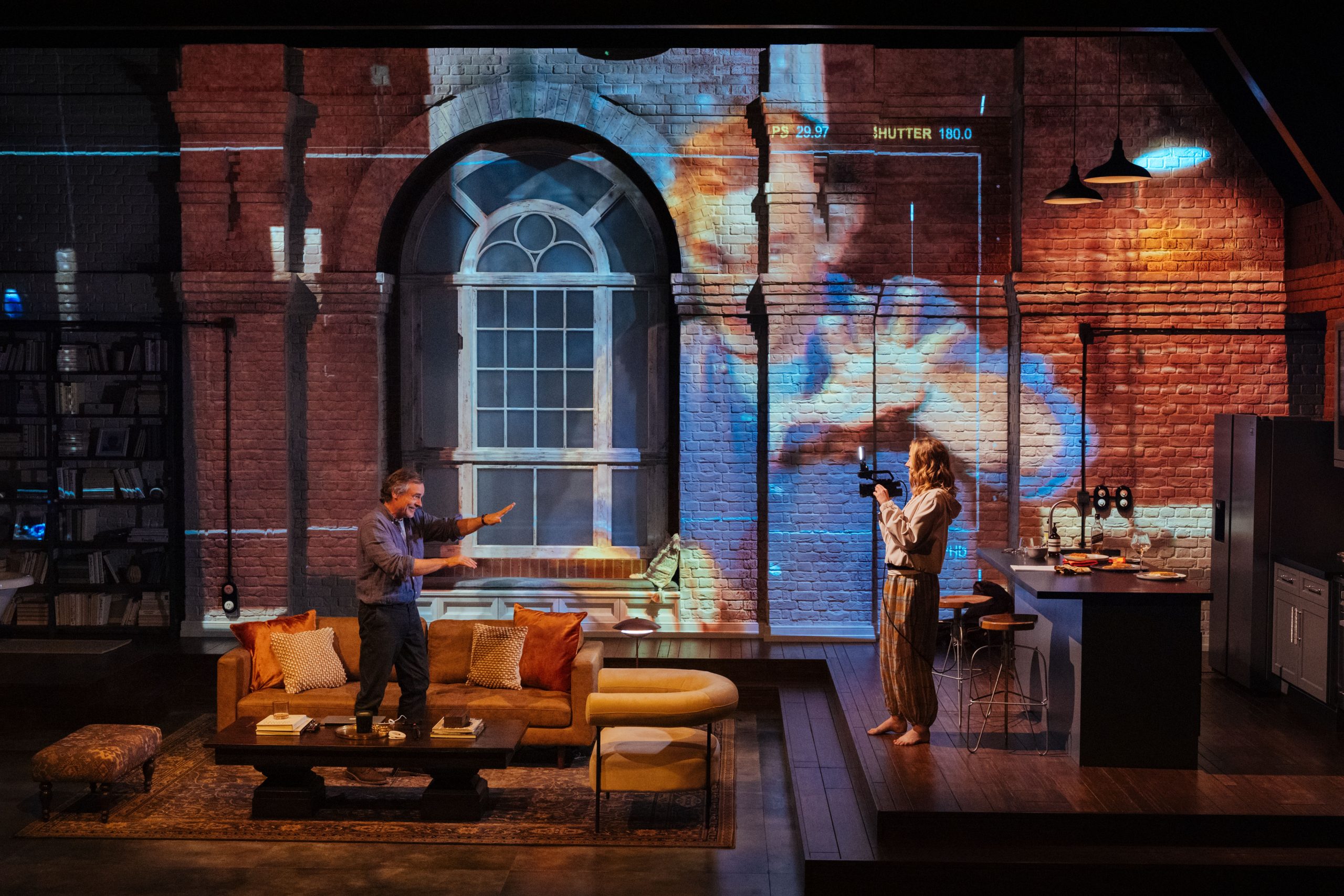
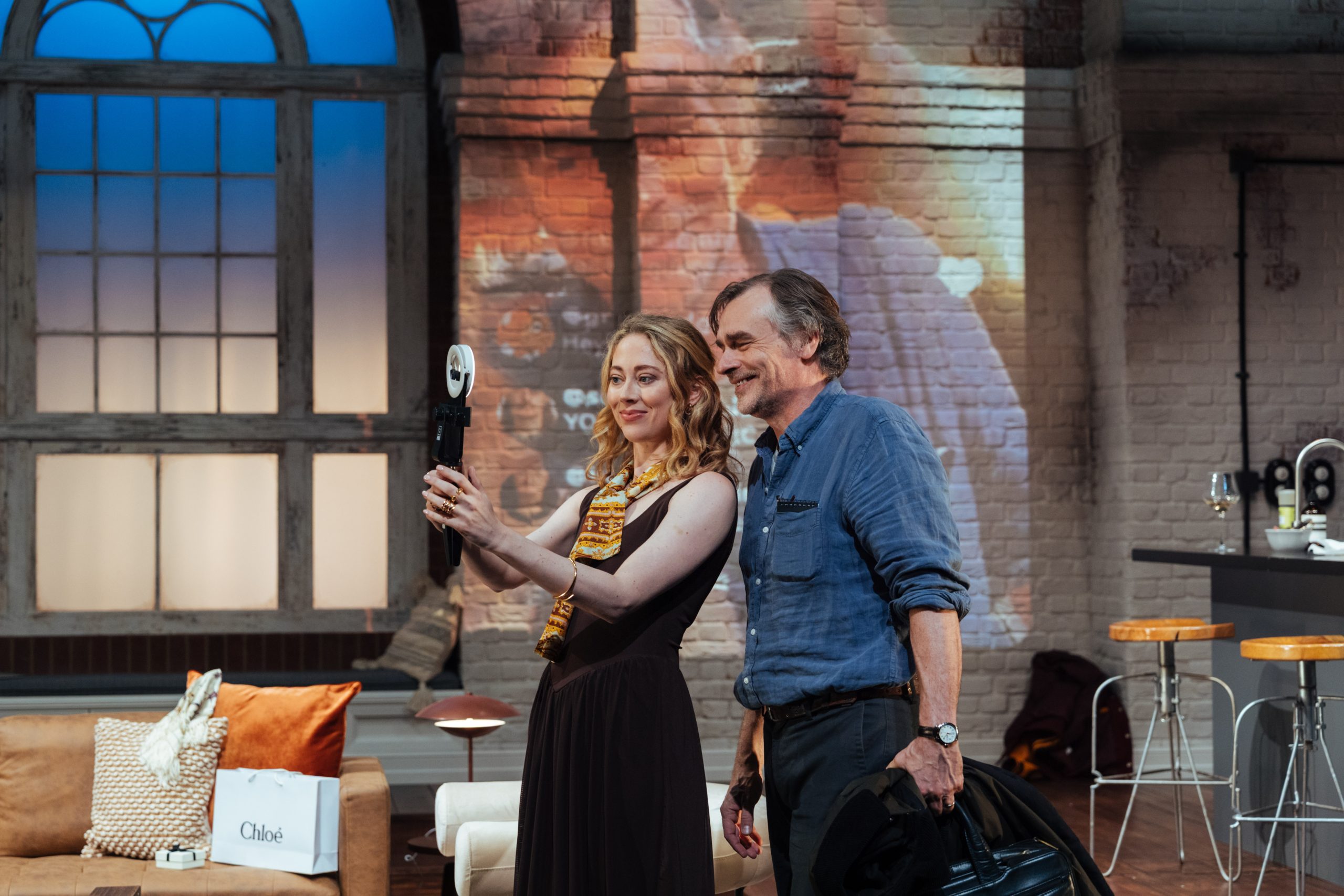
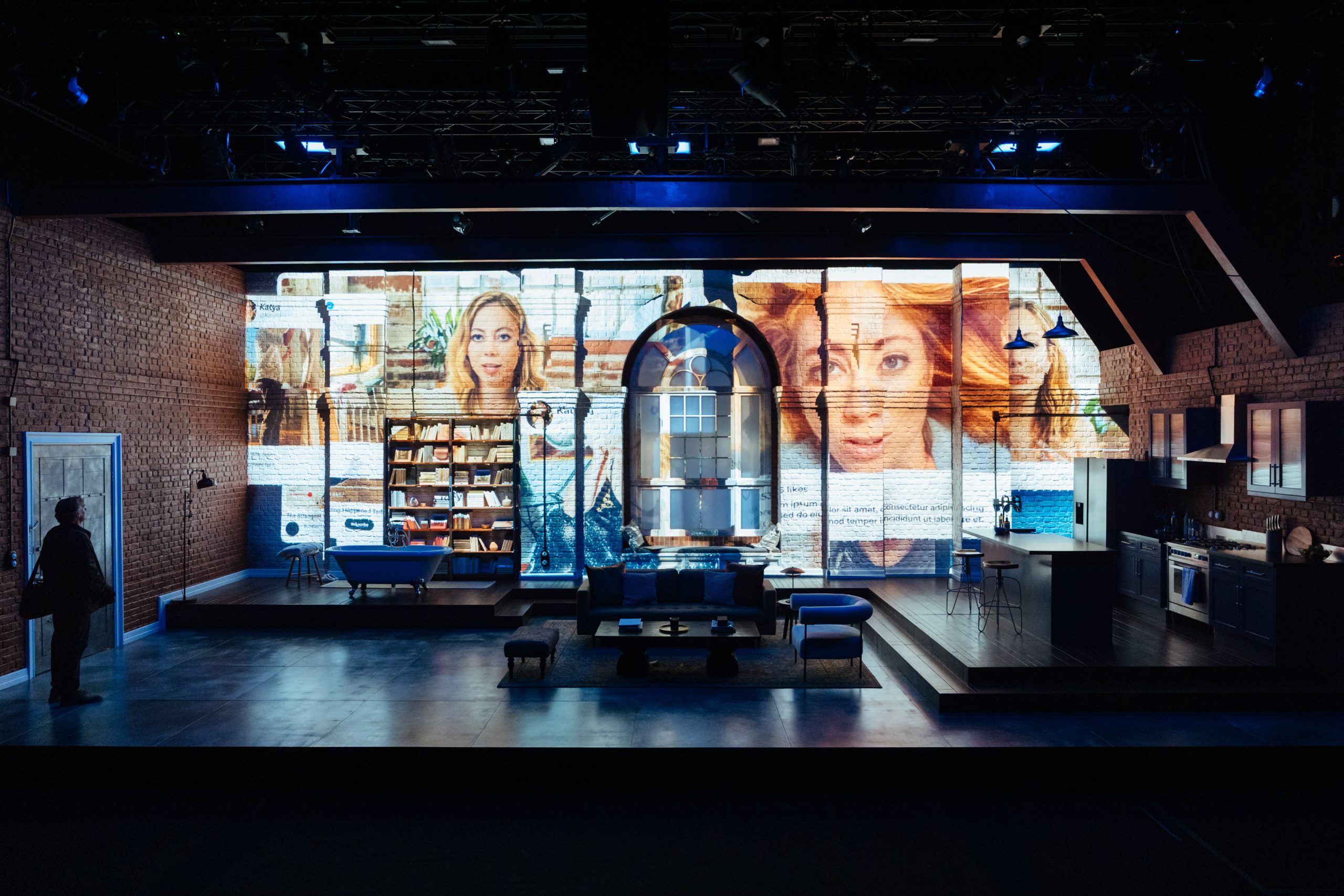
However, despite these strong elements, the production feels as though it doesn’t fully live up to its potential. While Robert Sean Leonard delivers a solid performance as the world-weary and flawed Pierre, the chemistry between the two actors is uneven and that isn’t helped as neither of the characters are particularly likeable. The play’s pacing is also a factor. Whilst some of the dialogue is engaging, there are moments where the production feels slow and delivered in a style that is perhaps more suited to screen than stage.
The story does leave the audience with a host of fascinating questions: What is truth? Where does the performance end and the real person begin? And can we ever truly know who someone is when they are so adept at shaping their own narrative?
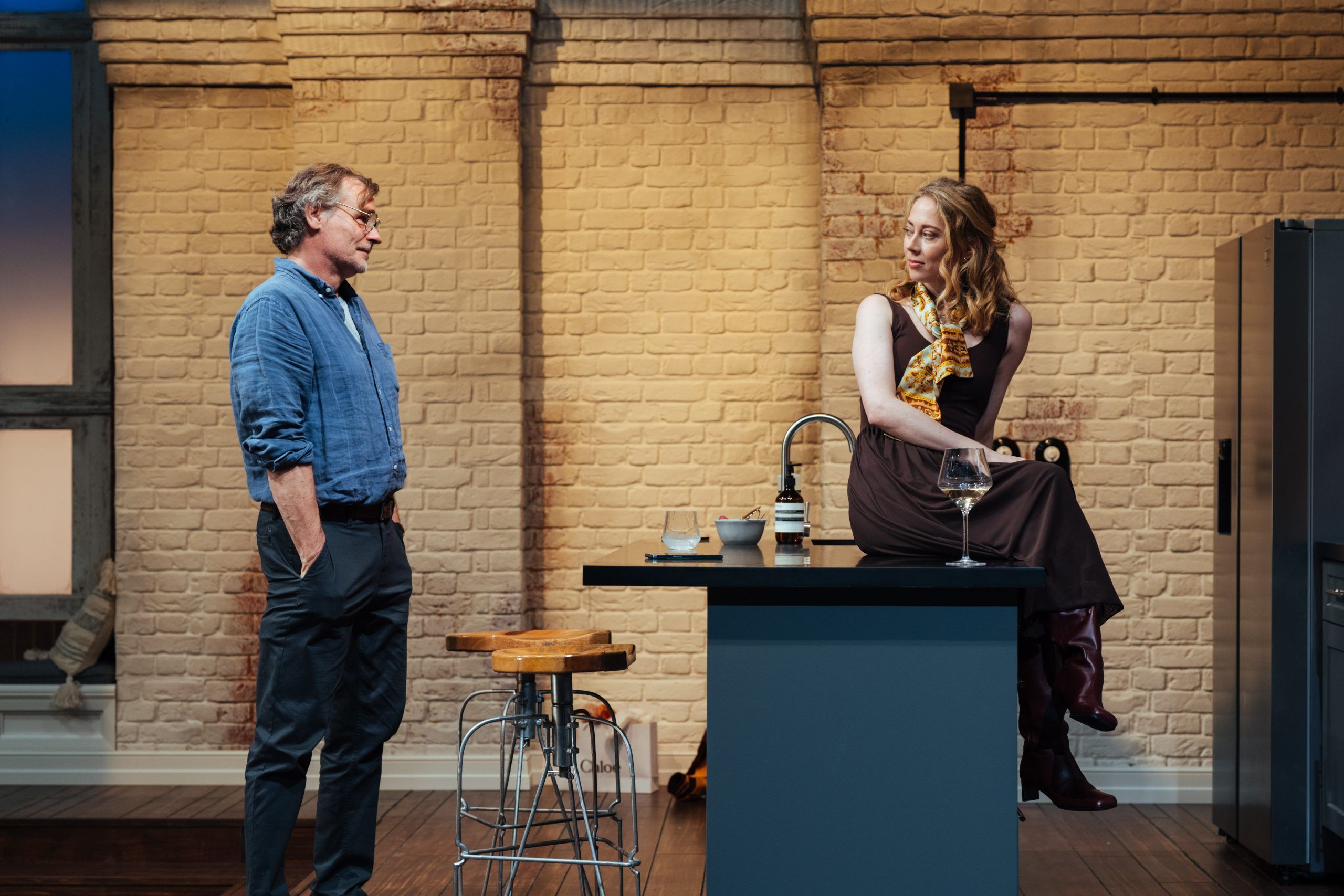
Ultimately, Interview is a thoughtful and relevant production that grapples with some of the most pressing questions of our time in a world where social media and mainstream media are strange bedfellows. It also expertly sets the stage for an exploration of generational divides, and personal authenticity and morals. Whilst it doesn’t quite deliver overall, it does succeed in capturing the zeitgeist and giving us viewers (or perhaps that should be ‘voyeurs’) pause for thought, even as it struggles to make its two central characters fully connect. In the end, it’s a show that lingers more in the questions it asks than the impact it delivers.
Interview is playing at Riverside Studios until 27 September 2025.
Book your tickets at riversidestudios.co.uk
Words by Helen Keegan
Photos by Helen Murray

